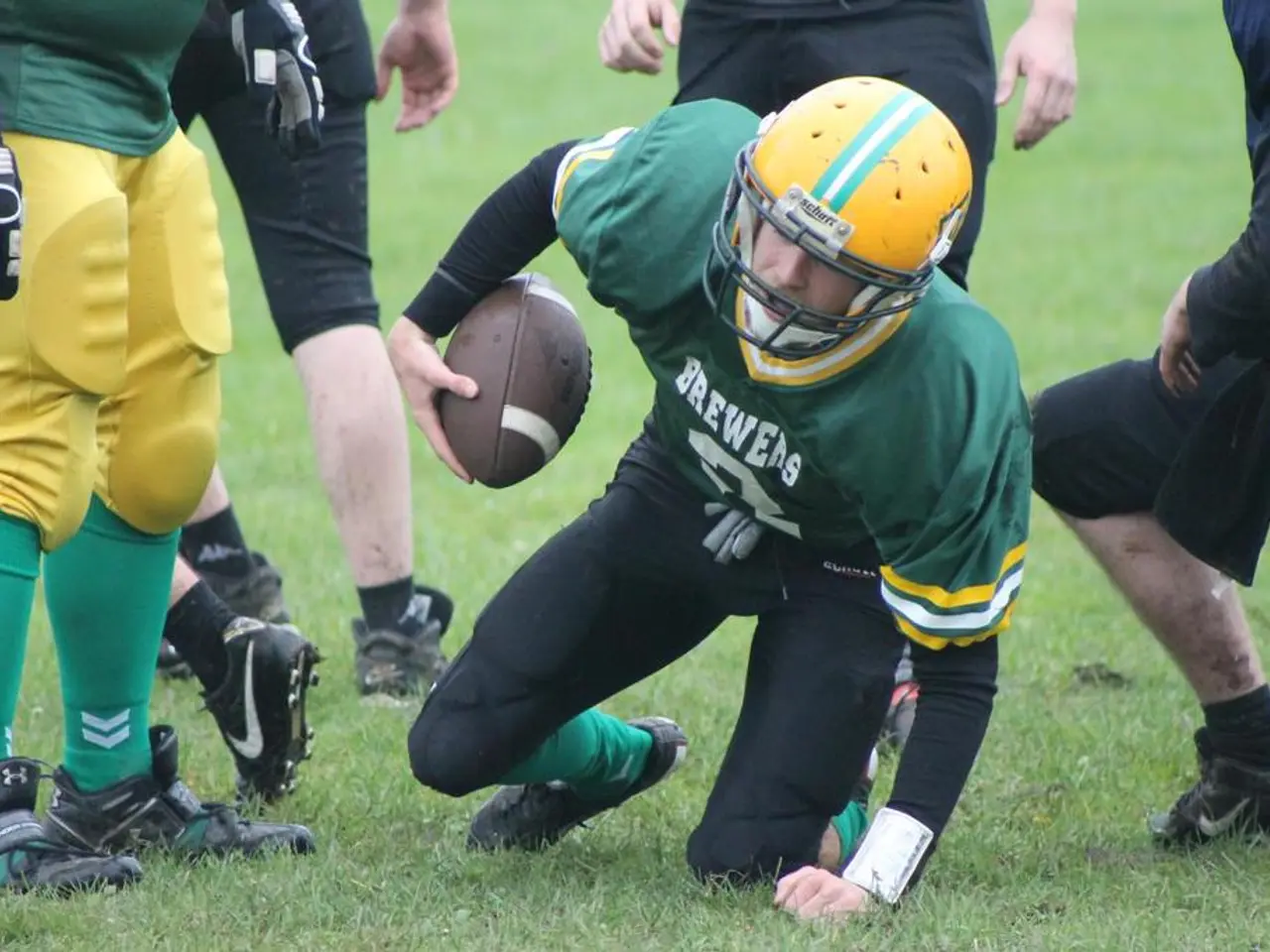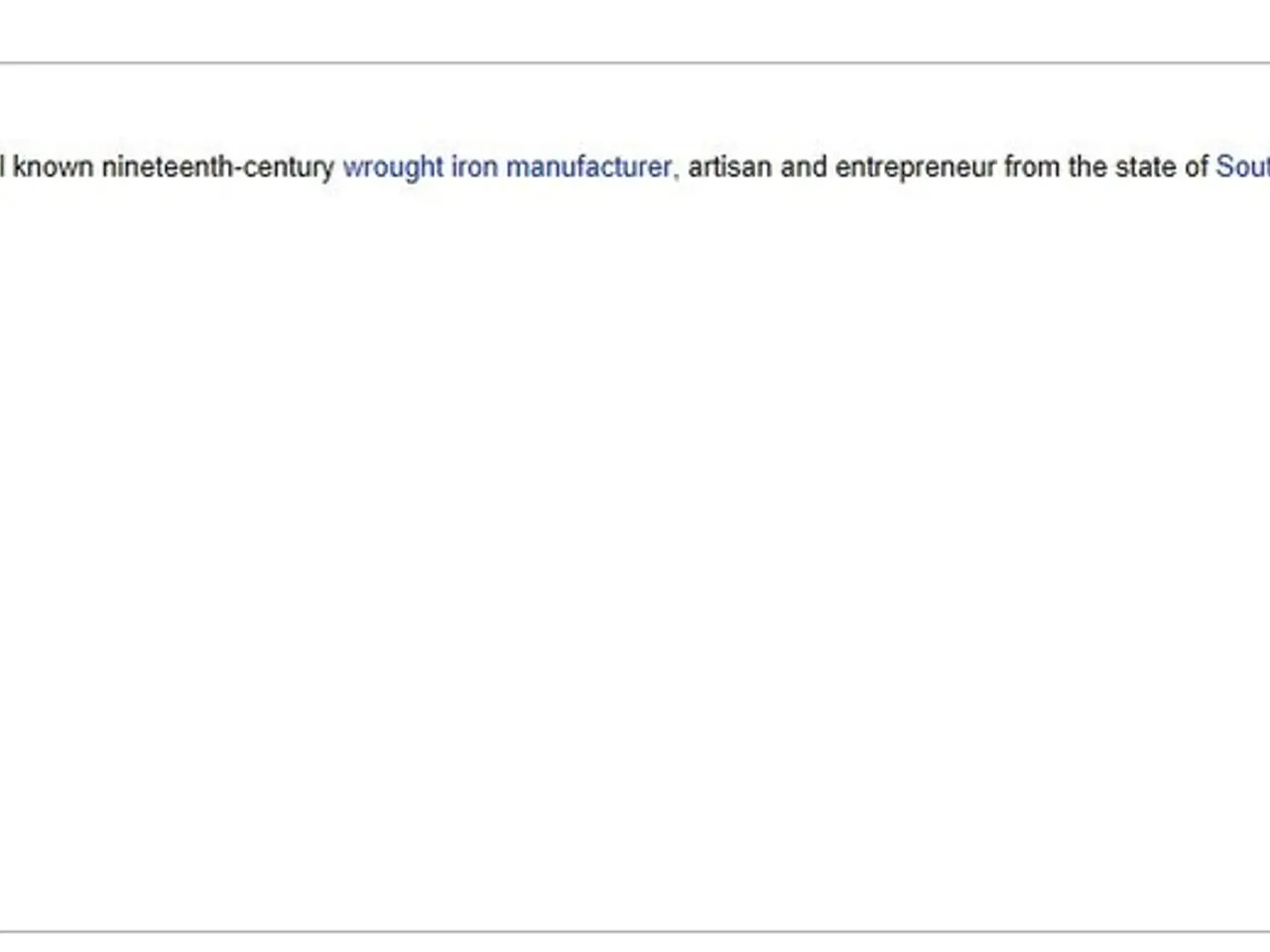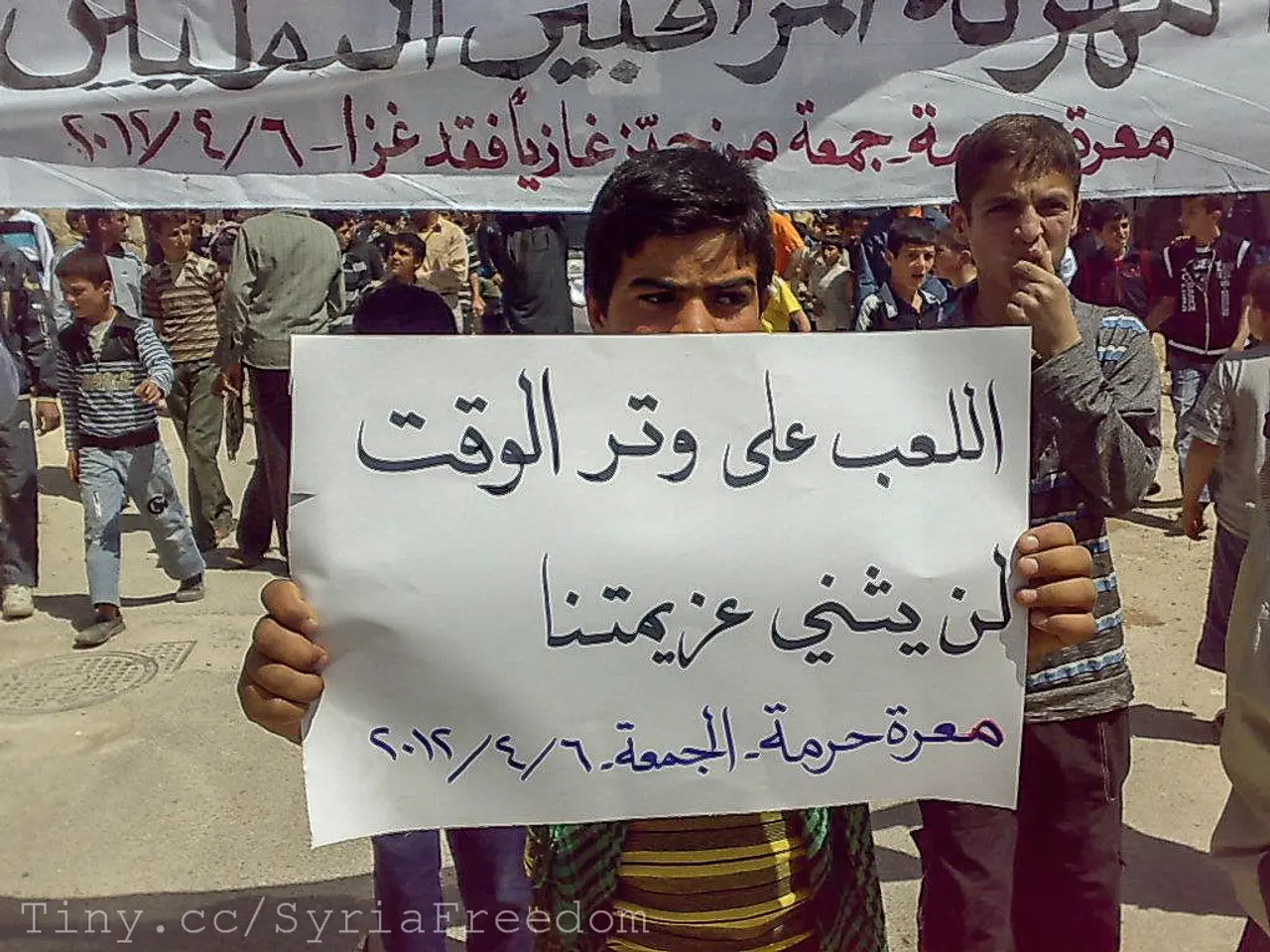Operating Mechanics of American Football
Penalties in NFL American Football: Enforcing Fair Play and Maintaining Game Integrity
In the fast-paced world of NFL American football, penalties play a crucial role in ensuring fair play, protecting players, and maintaining game integrity. These rules cover the identification, enforcement, and review of fouls during the game.
When a penalty occurs, an official throws a yellow flag onto the field to signal the foul to everyone watching. Common penalties include offside, defensive pass interference, roughing the passer, holding, and delay of game.
Each penalty carries a predefined yardage loss or gain. For instance, a false start results in a 5-yard penalty, while roughing the passer carries a 15-yard penalty. Some penalties even result in automatic first downs.
Once the ball is spotted and the penalty announced, the decision is locked in, and coaches generally cannot change their acceptance or rejection of the penalty, except in cases of confusion, replay review, or a challenge affecting the play.
Replay officials have limited power regarding penalties. They cannot call penalties missed on the field but can intervene to overturn incorrect calls flagged on the field for certain objective fouls. Recent updates have expanded the scope of replay review, covering five more penalties, including face mask and roughing the kicker, but only with clear and obvious video evidence.
Serious fouls, labeled as flagrant or non-football acts, can lead to player ejection or disqualification, reflecting the NFL's concerns for safety and discipline.
The NFL football field is a rectangle measuring 120 yards (110 m) long and 53 yards, 1 foot (49 m) wide. At each end of the field, there's an end zone, a 10-yard-wide (9-meter-wide) area where the goal line, an 8-inch-wide (20-cm-wide) line, runs across the front.
The game is divided into four quarters, each 15 minutes long. If the game is tied after four quarters, an overtime period of 15 minutes is played. A team receives a kickoff at the beginning of each half and after the other team scores. After scoring a field goal or touchdown and completing the extra point or two-point conversion attempt, a team must kick the ball to the opposing team, except on a safety.
The offense, consisting of the quarterback, offensive linemen, receivers, and running backs, is responsible for taking the ball down the field toward the opponent's end zone. The defense, on the other hand, is hoping to kick the ball down the field and tackle the receiving team's kick returner before he comes back down the field. A team often chooses to punt the ball in order to back the opposing team up so that it has to cover a greater distance to score.
In case a team recovers a ball dropped by the other team (fumble) or picks off a ball thrown by the other team's quarterback (interception), it gains possession of the ball. A team that scores a safety gets the ball on a free kick.
The field is covered in grass or artificial turf. An NFL officiating crew consists of six men, each with distinct responsibilities. The referee is the head official on the field and serves as the final authority on rule interpretation. The umpire rules on players' equipment and conduct. The head linesman is responsible for calling infractions of player movement when lined up on the line of scrimmage. The line judge keeps time during the game to backup the official clock operator. The field judge makes calls regarding the wide receivers and backs on his side of the field. The side judge makes calls regarding the wide receivers and backs on his side of the field. The back judge makes calls regarding the tight end and the player the tight end might be blocking. He is also responsible for keeping the time for the 25-second play clock, time-outs, and intermissions.
A touchdown is awarded when any part of the ball reaches the edge of the goal line, considered in the end zone. The most essential piece of equipment in a football game is the ball, which is an oblong sphere measuring 11 to 11.5 inches (27.9 - 29.2 cm) long.
Thus, the NFL's penalty rules are detailed in process, ranging from foul identification and yardage to coach decision-making and official review, with recent updates emphasizing clarity and limiting coach reconsideration once a penalty is enforced.
The Fast-paced NFL American football not only includes penalties for ensuring fair play and maintaining game integrity, but also includes penalties such as offside, defensive pass interference, and roughing the passer in football, similar to the ones described in the text about Penalties in NFL American Football.
When discussing the various responsibilities of the NFL officials, it's important to note that replay officials can intervene to overturn incorrect calls related to certain objective fouls like face mask and roughing the kicker, as mentioned earlier in the text about Penalties in NFL American Football.






